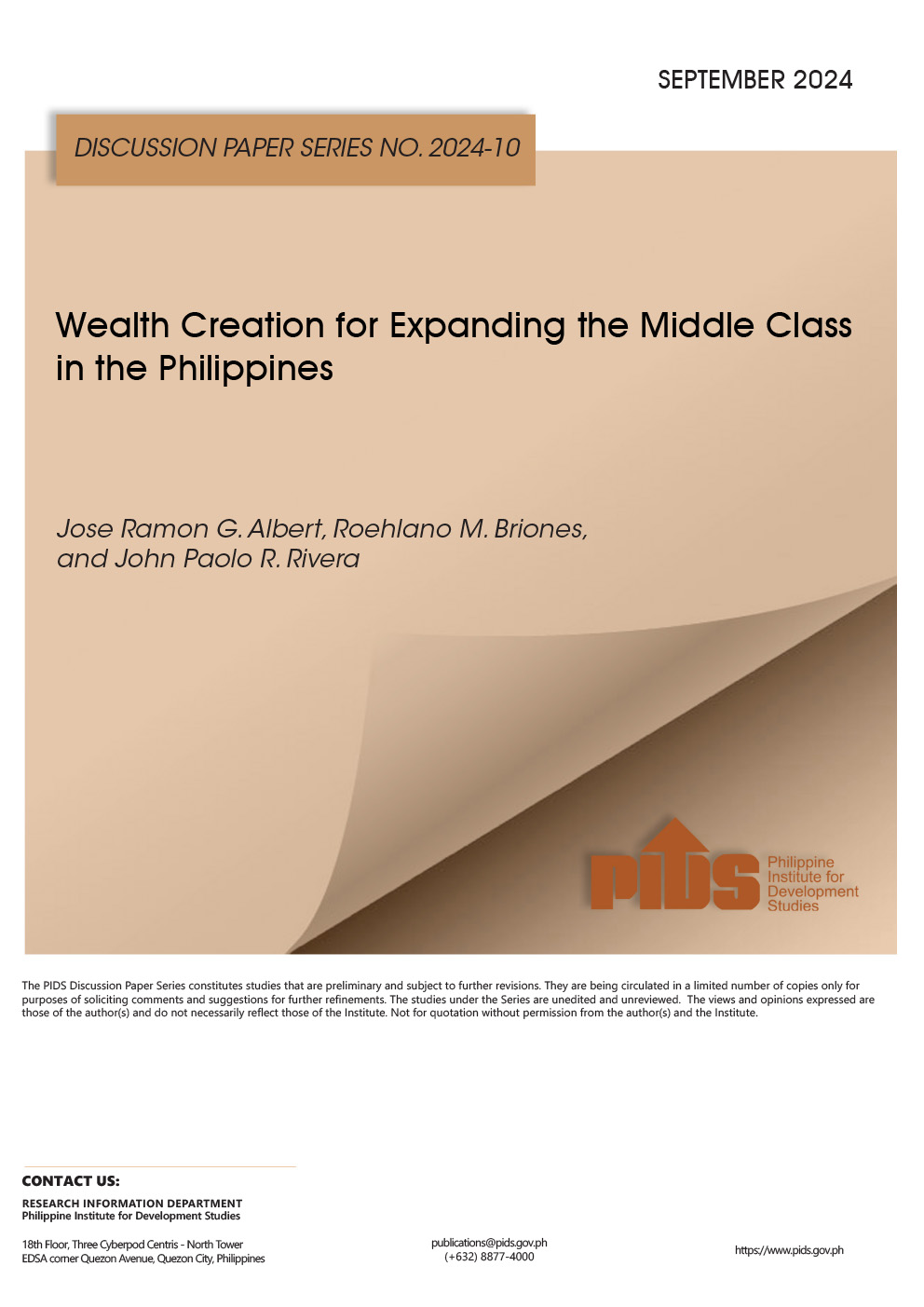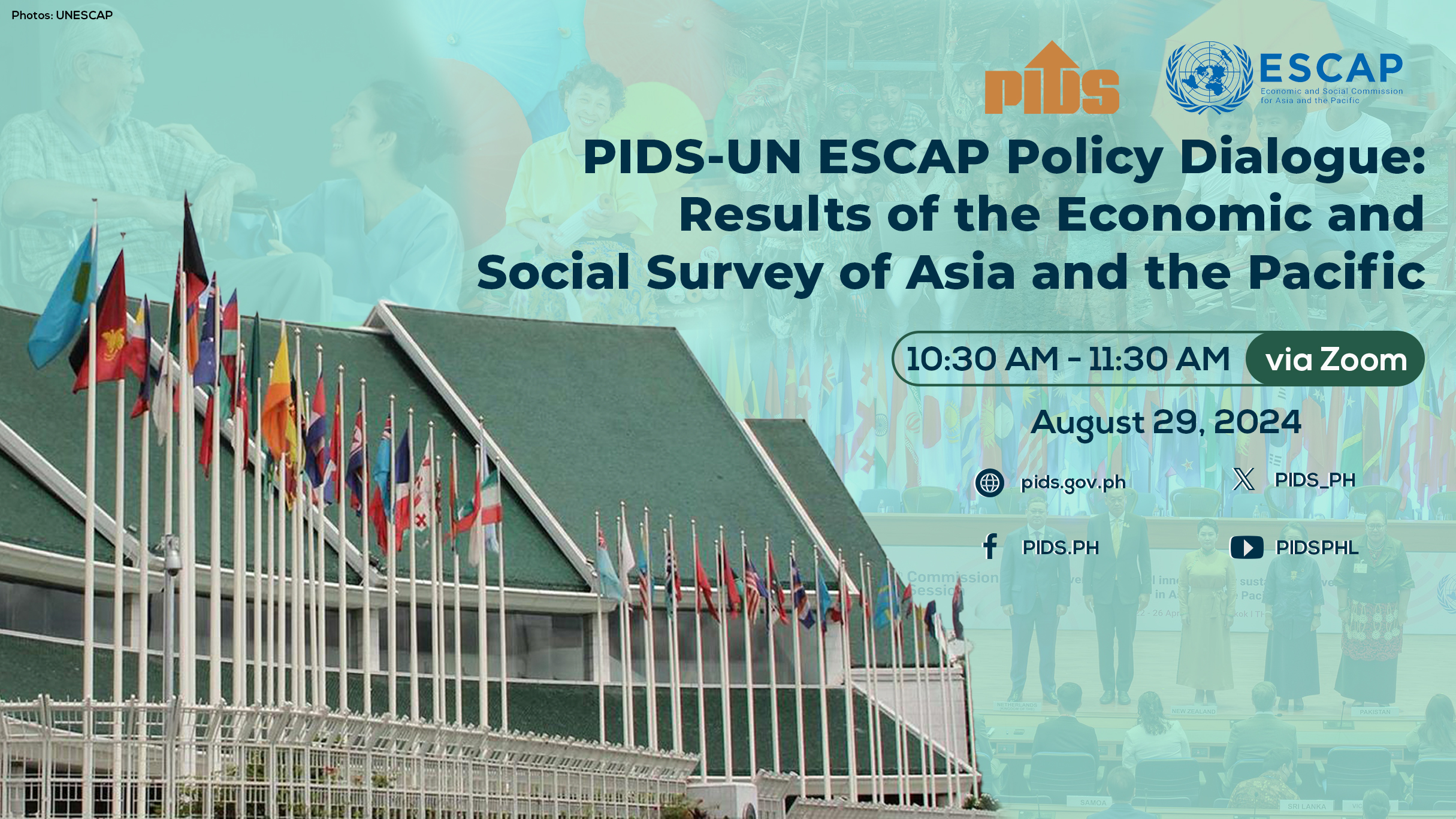An adviser to the Asian Development Bank (ADB) has stressed the role of small and medium enterprises (SMEs) in economic development and how the Philippines can help enhance local SMEs in the global value chains.
Dr. Ganeshan Wignaraja told a forum sponsored by the Philippine Institute of Development Studies (PIDS) that SMEs are considered a vehicle for inclusive growth both at the national and regional levels.
The SMEs made up 99.6 percent of the total enterprises in the Philippines and accounted for more than 61 percent of the total employment across the country. However, SMEs contribution to the economy does not reflect in trade in terms of direct exports, said Wignaraja.
He noted that trade itself is no longer about direct exports. "Trade is about being involved in factories across the world. It means supply chain trade. Asian entry in global value chains accounts for the growth in Asia.”
The ASEAN share of world supply chain exports accounted for 9.3 percent of the world supply chain trade. "The big players in Asia are currently neighbors to the north, and if the countries comprising the Association of Southeast Asian Nations (ASEAN) want to keep up, the region must adjust and change to acquire the necessary models and criteria to ensure increased participation,” said Wignaraja.
He pointed to size, scale of production, access to technology, foreign equity, and access to credit as essential requisites. "When it comes to size, being a big firm naturally begets advantages to expand due to larger scale of production, possibly better access to technology.”
But Wignaraja said that being small can also work for an SME. "By clubbing in clusters, SMEs can overcome some of the disadvantages of size and rely on the benefits of interdependence.”
"But it’s not just firms and what’s inside of them. The environment of business support services around the firms also counts. The better the type of services firms have around, analyzed Wignaraja, the more chances they’ll grow and capture more global value chains,” he said.
He also noted that the lack of access to finance by SMEs is widespread in the Asian region with wider credit gap in the Philippines.
Wignaraja explained how changing collateral laws can prove important for SMEs.
"In an SME cluster, for example, the use of peer pressure within a network of SMEs for a particular business to pay back its loans can help and has already worked in Japan.”
Wignaraja explained that there is a lot to be done — expand banking, making financial access more inclusive, invest in financial literacy and education early in schools, improve banking systems, and develop better linkages for SMEs.
Meanwhile, Dr. Mario Lamberte of PIDS noted that banks not designed to lend to SMEs. "Banks do a lot of consumer and corporate lending, but little for SME lending, despite the laws requiring them to do so.”
"The idea is for banks to think about innovations so they can introduce in their system ways of lending with SMEs. Banks often require business and financial plans. Many of the SMEs that really need credit do not have the capacity to prepare these plans,” said Lamberte.
"SMEs have the single entry accounting system but banks expect to see something more complex. "The solution comes down to educating and designing programs to educate SMEs and improve their capabilities to scale up,” he added.//












